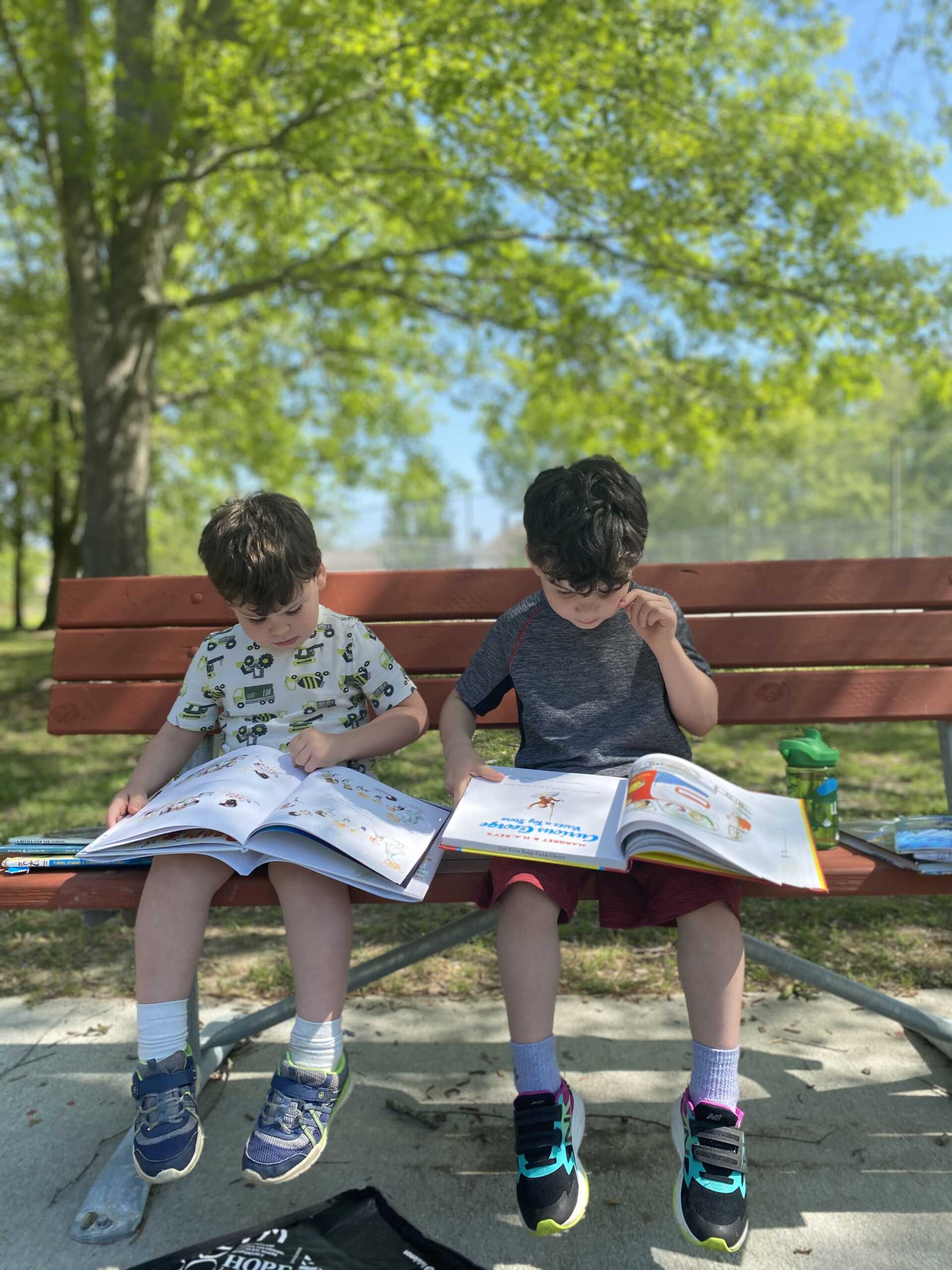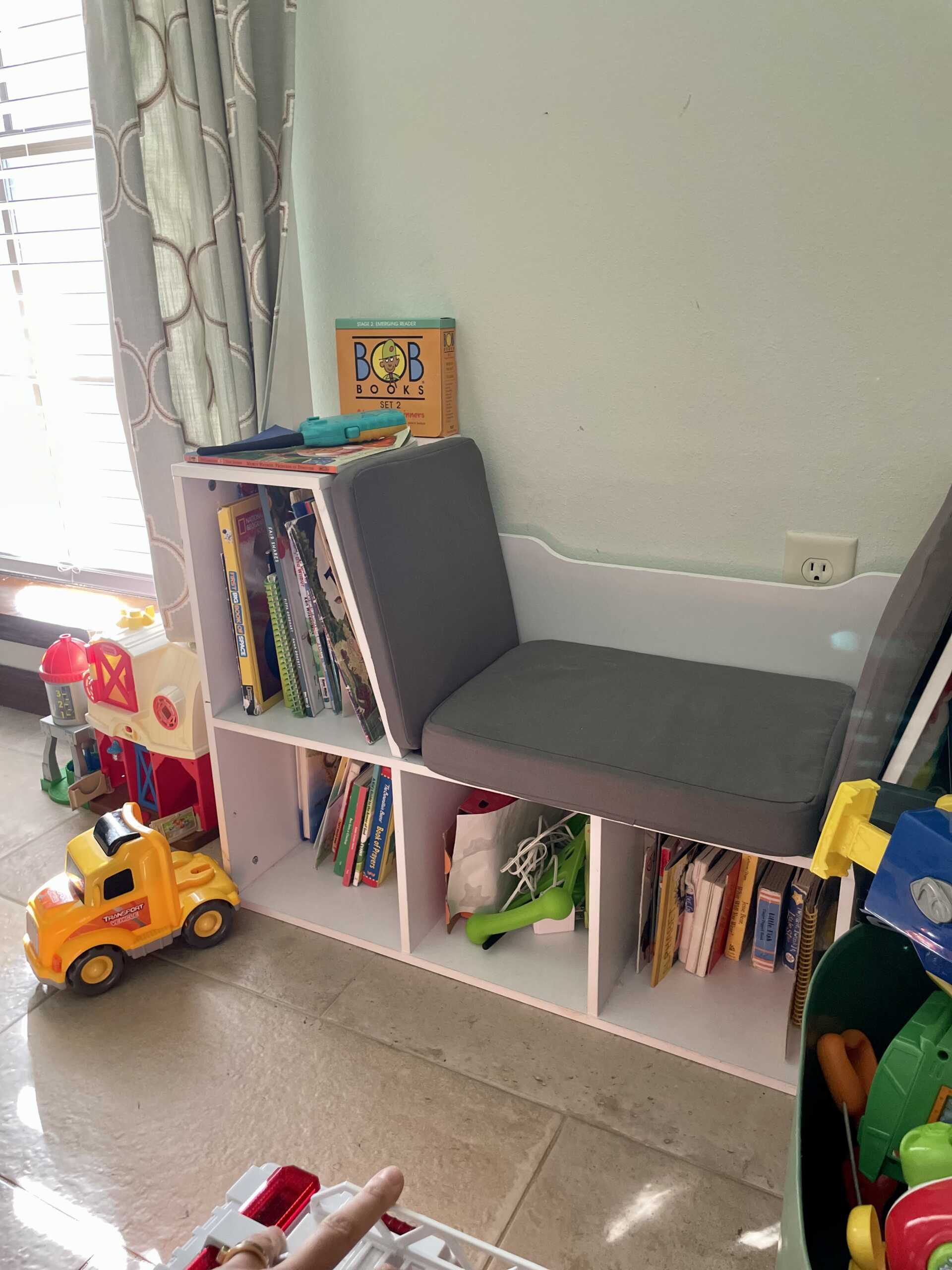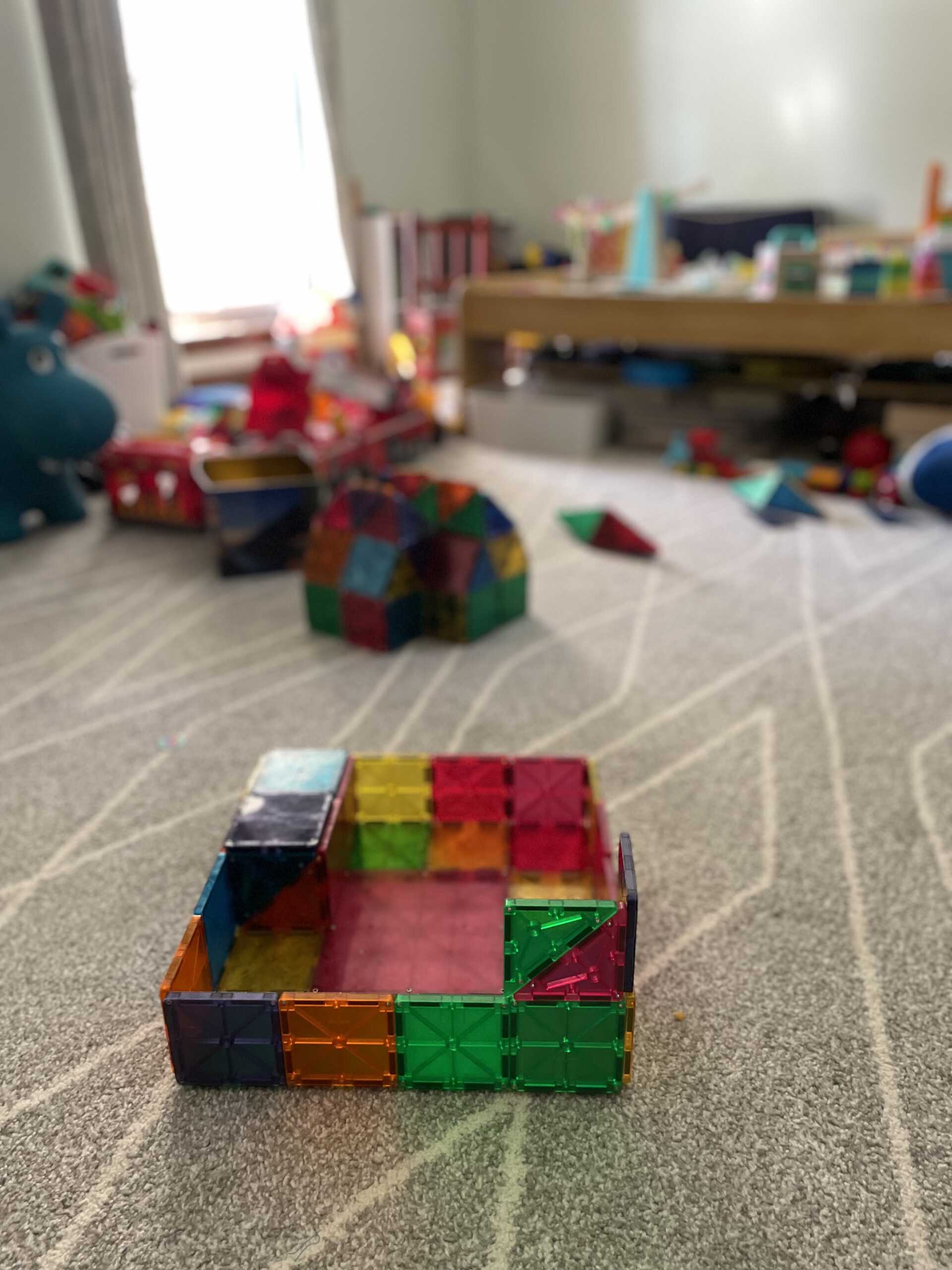No screens before 24 months. Thereafter, children should have a maximum of 1 hour of screens until age 5. Why is this? We have all heard the American Academy of Pediatrics recommendations, but does it really matter? Is that just for television time or does that include educational content as well?
What our family has learned from heeding screen recommendations.
Some of the reasons for the recommendations of no screen time until 24 months is because research has shown that there are zero benefits to screens, educational or not. What studies have shown are that screens before 18 months of age affect children’s speech and language skills including reading skills and attention in the long-term. What do we do in place of screens? Read! Play!

Reading is one of the best tools to introduce to children before the age of two. Repetition in reading gives children the ability to learn and grow in confidence in their literacy skills. Pre-reading can begin as early as when a child is introduced to a book. The more access a child has to books, the more inclined they will be to reach for one.
It is cute to have bookshelves high up, but if they are high and out of reach, how likely is your 18 month old to grab a book?
In our house, books are in all of our kids areas – in baskets, low bookshelves, reading nooks, and end tables. Our kid’s tablet (which we got only once our son was using educational apps in kindergarten) is used foremost as a kindle and secondary as a resource to school learning, but still within the 2 hours we allow for screens per day.


Language is developed through play.
Kids will learn words and concepts like “up,” “over,” “inside”by how you play with them. When working with kids in speech therapy, it’s through play that kids learn how to talk, not with apps or television shows. I like to say our kids have all been doing speech therapy at home since they were born. We actively play with toys on their level. Our toy room may not be the cutest, but is filled with different types of their favorite toys in order to encourage play. Our oldest loved Duplo blocks, so we sat with him for ours playing and building. Talking about how big of a tower he was building, giving him words for what he wanted, and allowing him to make mistakes.


Freedom in play creates language and confidence in children. Starting habits with a two month old in reading can translate to a 4 year old who is able to read simple sentences. Not that reading has to be mastered by Kindergarten but reading breeds independence. One who can read has the tools to learn. One who has the creativity to play can be bored yet figure out how to entertain themselves.
















